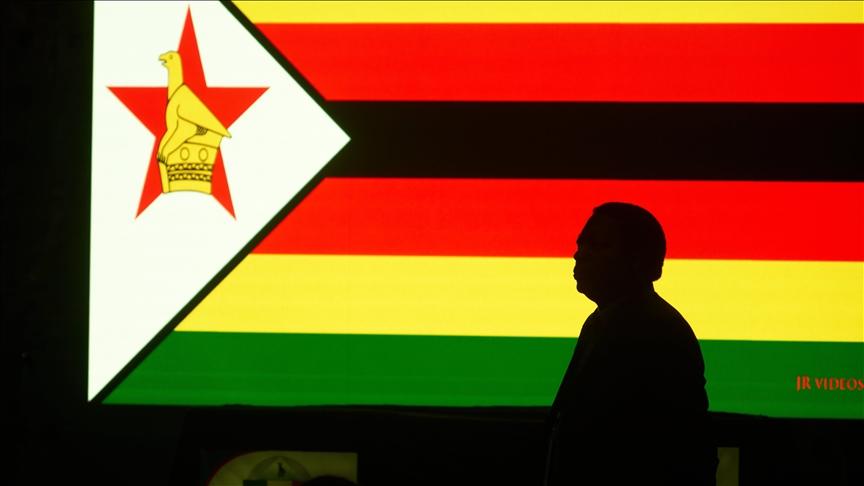
HARARE, Zimbabwe
Zimbabwe’s political future in is in limbo after last week’s disputed elections.
Official results gave President Emerson Mnangagwa a second term with 52.6% of the vote, well ahead of his main opposition rival Nelson Chamisa, who finished on 44%.
The opposition Citizens’ Coalition for Change (CCC) party has rejected the results, alleging that the polls were marred by irregularities and called for a re-run, plunging the country into an uncertainty that analysts say could lead to a dire outcome: a possible military takeover.
These fears have gained further credence after Wednesday’s coup in Gabon, where the military seized power hours after the controversial re-election of President Ali Bongo Ondimba following the disputed Aug. 26 elections that observers said were riddled with flaws.
Bekezela Gumbo, lead researcher at the Zimbabwe Democracy Institute (ZDI), said a similar situation cannot be ruled out in Zimbabwe as the election standoff has shattered the hopes of millions of people who were hoping for change.
While prospects of a coup in Zimbabwe “are very slim at the moment,” they “would be very high as we move towards the midterm of Mnangagwa’s second term,” he told Anadolu.
“By then, it will be very clear that the challenges besetting Zimbabwe would be beyond his capacity and attributable to his incapacities and failures.”
Another reason why a coup is not an immediate possibilty is because of the “deep ties” between the military elite and the ruling ZANU-PF party, who both “stand to benefit from the irregularities of the election,” said Gumbo.
Legal route ‘most peaceful’ option
The actual voting on Aug. 23-24 saw long delays that triggered opposition accusations of rigging, voter intimidation and suppression.
Regional and international observers also issued damning reports, including missions from the African Union and Southern African Development Community and the EU.
The EU mission said the elections “fell short of many regional and international standards, including key principles of equality, universality, transparency and accountability.”
When Chamisa addressed reporters last Sunday, he declared the elections a complete sham.
“We have won this election. We are the leaders,” he asserted.
Yet the Zimbabwe Electoral Commission has named Mnangagwa the winner and Chamisa’s way forward remains unclear.
According to Gumbo, the opposition’s predicament could potentially be addressed by Zimbabwe’s courts, which he said would be “the most peaceful of all the options available.”
“It’s a win-win for the opposition. If they provide sufficient proof, it doesn’t matter whether the court decides in favor of ZANU-PF. The evidence will be exposed to the whole world to see and the electorate will be convinced,” he said.
“But the CCC must have enough evidence. We’ve seen across Africa that a disputed election cannot be set aside without proof and the burden of proof is on the shoulders of the opposition.”
However, Abdony Marime, an academic at the University of Zimbabwe and a political analyst, believes otherwise.
“Our problem is that we have political competitors who only believe that something is fair when they win. Another problem we have is that people in Zimbabwe are polarized; they believe that everyone should believe the same as they do, meaning anyone with contrary views is an enemy,” he told Anadolu.
Courts ‘a waste of time’
Other experts also see no hope in the country’s judicial system.
Wurayai Zembe, a political analyst, said the courts have been “captured” by the ruling party.
“In the past, we have seen them being used and manipulated by the ZANU-PF government and President Mnangagwa. The Constitutional Court may not give a decision that respects the will of the people,” he told Anadolu.
However, he warned that if that happens there “will be a very serious chance of chaos and disorder.”
For Zembe, the solution lies in “hammering out a new electoral and constitutional order where another election should be held.”
“My view is that since we are members of the SADC, African Union and the UN, these three bodies should help Zimbabwe organize another fair and credible election,” he said.
Rashweat Mukundu, a researcher with the NGO International Media Support, said the political standoff is not likely to be resolved “anytime soon.”
“What we are likely to see is a continuation of the Zimbabwean political crisis. The region has taken a position and we hope that they will insist on some resolution, some political dialogue,” he said.
“Without this, the matter will go to court and the court will likely agree that ZANU-PF won because the courts are part of the ZANU-PF political system. They have been captured and essentially Zimbabwe will remain where it is, if not worse in terms of its capacity to look after itself and its people.”
He blamed the crisis on Mnangagwa’s desire to cling to power “at all costs.”
“Hence the use of all electoral malpractices, intimidation, manipulation of figures that we have seen. It’s unfortunate that this deepens the political crisis in Zimbabwe, which may worsen our economic situation,” he said.
Like Mukundu, Elvis Mugari, a die-hard Chamisa supporter, also does not believe the courts would be of any help.
“Going to the courts is a waste of time. The judicial system has proven time and again that it’s an institution that favors the ruling party,” he said.
Anadolu Agency website contains only a portion of the news stories offered to subscribers in the AA News Broadcasting System (HAS), and in summarized form. Please contact us for subscription options.

